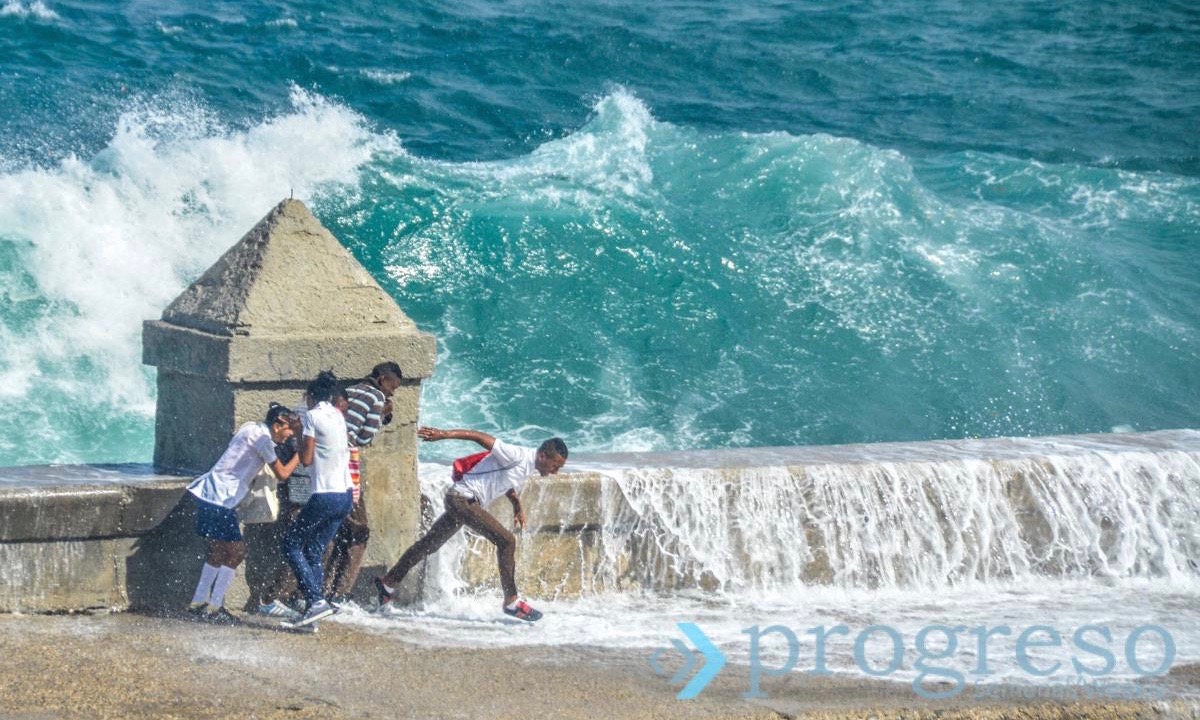
Let’s stop calling Cuba unsafe
On January 18, 2018, Cuba was named “Safest Country for Tourism” at the 38th annual International Tourism Fair (FITUR), in Madrid, Spain. That’s no surprise to me. I’ve always considered Cuba to be the safest place in the Americas outside Canada, despite the almost laughable accusations of “sonic attacks” on U.S. diplomatic staff in Havana.
In October 15, 2017, the Trump administration recalled more than half the personnel at the U.S. Embassy in Havana, claiming that they had been deliberately “targeted” in “sonic attacks.” Twenty-four staffers (plus several Canadians) are reported to have suffered hearing and cognitive impairment and other issues while in Cuba between November 2016 and August 2017. The symptoms, we’re told, followed unexplained “high-pitched chirping” at diplomats’ homes and other locations in Havana, causing hard-line anti-Castroites such as Sen. Marco Rubio (R-FL) to accuse the Cuban government of perpetrating “attacks” with some sort of futuristic Minority Report-like sonic device. (The State Department has refused to release medical data or even name the diplomatic staff involved.)
Scientists pooh-poohed the idea, while top neurologists proclaimed the symptoms a classic case of psychogenic disorder. “From an objective point of view, it’s more like mass hysteria than anything else,” Mark Hallett, President of the International Federation of Neurophysiology, told The Guardian. “The notion of some sonic beam is relatively nonsensical.”
Nonetheless, the mainstream media couldn’t resist touting this prime-time headline story as if the purported attacks were real. The sense that Havana’s streets were patrolled by nefarious Men in Black mimes was echoed on September 29, 2017, when the State Department issued a travel warning deeming Cuba “unsafe.”
More than 615,000 U.S. travelers visited Cuba in 2017—a banner year as overall tourism to Cuba topped 4.5 million. A downtick in travel by U.S. citizens to Cuba was to be expected following President Trump’s announcement that individuals would no longer be permitted to travel solo under a ‘people-to-people’ license, effective November 8, 2017.
But the wide publicity given to accusations of sonic attacks, together with the State Department warning, have reduced U.S.-Cuba travel to a trickle. American travelers are running scared. Tour operators specializing in Cuba ‘people-to-people’ programs report that demand this winter is down about 80 percent. On January 15, I returned from leading a ‘people-to-people’ trip for National Geographic Expeditions, having witnessed first-hand that U.S. travelers in Cuba are now thin on the ground, while B&Bs and paladares (private restaurants) that last year were overflowing with American travelers are suddenly begging for business.
That’s a pity… not least because the notion of Cuba being unsafe is bogus.
Following months of investigation and four FBI trips to Havana, a report (January 4, 2018) from the bureau’s Operational Technology Division says the FBI probe has uncovered no evidence that sound waves could have damaged the Americans’ health, as the Trump administration has claimed.
“There are some people with symptoms that are unexplained,” adds Sen. Jeff Flake (R-Ariz.), a member of the Senate Foreign Intelligence Committee privy to classified briefings that have backed up Cuba’s claims that the accusations are baseless. “The Cubans bristle at the word ‘attack.’ I think they are justified at doing so. The FBI has said there is no evidence of an attack. We shouldn’t be using that word.”
In response, on January 10, 2018, the State Department softened its travel warning. It now recommends that travelers “reconsider” plans for travel to Cuba. In my opinion, even this travel warning makes zero sense. There was never any evidence of any threat to U.S. tourists, nor—as the FBI has concluded—that any attacks ever occurred.
Nonetheless, Sen. Rubio tweeted “method of attack still in question” but attacks are a “documented FACT!” as if this were the X-Files. His fakenews reaction was to be expected. Any dealings with Cuba—including the sin of travel—are anathema to this embittered Cuban-American and long-time opponent of the Castro government. As Chairman of the Senate Committee on Foreign Relations for the Western Hemisphere (and member of the Senate Intelligence Committee investigating Trump’s alleged Russian connections), Rubio pretty much gets to shape Trump’s Cuba policy. And as chairman of the Senate committee overseeing the investigation into the purported attacks, Rubio seems determined to get the final word. We’re not done with the politically motivated misinformation and machination.
Meanwhile, U.S. travelers who’ve been scared off travel to Cuba should consider this…
Many countries warn their citizens about traveling to the USA. For example, following the terrorist mass shooting in Las Vegas in October 2017, the Canadian government issued a travel advisory, warning that guns and violent crime are common in the USA. The UK did the same, warning travelers to the USA to “remain vigilant” about potential terrorist attacks and shootings: “Attacks could be indiscriminate, including in places visited by foreigners.”
Gun crime is unheard of in Cuba. Violent crime is rare. Even the U.S. Department of State Bureau of Diplomatic Security admits that what comparatively little crime there is “can be associated with pick-pocketing, purse snatching, fraud schemes, and thefts from unoccupied cars, hotel rooms, and/or dwellings.”
FITUR’s award to Cuba for “excellence in tourism safety” should quell any lingering doubt. So do yourself—and the warm and welcoming Cubans—a favor… make 2018 the year you visit the island to savor its charms for yourself.
Christopher P. Baker is a travel journalist, public speaker, and tour planner specializing in Cuba. His six books about Cuba include Moon Cuba, National Geographic Traveler Cuba, and Mi Moto Fidel: Motorcycling Through Castro’s Cuba.
Photo by Carlos Ernesto Escalona Martí (Kako)
(Taken from smerconish.com)


